
Jose Ortiz
Eugene and Ruth Roberts Summer Student Academy 2012 & 2013
Follow this authorHow the Right Mentors and a Courageous Mom Enabled My Journey from the Barrios to the Laboratory
Mentores adecuados y una madre valiente me ayudaron a salir de los barrios rumbo al laboratorio
01/23/2014 04:02PM | 13562 viewsI was born in the barrios of Tijuana, Mexico, a neighborhood
riddled with extreme poverty and violence.
With my father gone, my mother was left to raise my two
sisters and me on her own. She worked as a maid and cook, but these jobs were
not enough to make ends meet. Soon she realized Tijuana was not an ideal place
to raise her children. For that reason, in 1998, my mother made the decision to
migrate from Baja California, Mexico to southern California, USA.
Although our new neighborhood was more conducive to family
life, my mother still had to work three jobs to make ends meet. Succumbing to
the manual labor jobs of society, my mother would work in the morning at a
factory assembling socks and gloves, before leaving for her next job cleaning
restaurants at night. On the weekends, my sisters and I would help her clean houses
and we also picked up recyclables to earn more money for food. During this
time, I did not realize that my mother was carefully training my siblings and
me to work independently and become more resourceful – essential skills
necessary for success on any career path.
Hoping to provide a better life, my mother enrolled us in
school after filing her taxes and receiving a tax identification number for all
of us. My first experience of the American school system was standing in line
for a free lunch. Unfortunately, the free lunch remained the highlight of my
day. It became the only reason I liked going to school. Bullied by my peers for
not knowing English and punished by my teachers for not following instructions
written in English, I had a negative impression of school. In 5th
grade, my teacher took me out of class and said to me, “Why are you so stupid,
Jose?!” Scared and confused, I was silenced by her words and once again
alienated in my own struggle.
Economic stressors consumed my school years as I strived to
help my family. By middle school, I was getting up at six in the morning to
make my mother food for work before going to classes. Daily life was hard, but
I was grateful that I could help. Seeing what she was doing for our family made
me appreciate even more the sacrifices she was making for us.
It was around this time that I began to realize not every
family was the same – everyone had struggles but they did not have our
particular trials. Many of my peers were being raised in good stable homes, where
the parents worked well-paying jobs. But no matter what our background, status,
or identity, we did have one thing in common – we were all pursuing the
American Dream.
In high school, I began to believe that I could obtain a
better life by striving for a higher education. I intentionally sought to learn
from classmates who came from more privileged households. Particularly, I copied
what they were doing to prepare for college. Since my mother was unable to
advise me, I took it upon myself to do what was necessary to excel in school. I
took as many AP classes as I could and volunteered to build up my
extra-curricular activities. At one point I worked up to three jobs during my
high school career. All of my efforts paid off when I was accepted to UCLA, among
other top universities.
At UCLA I did not know what to expect. Initially, I felt
lost and out of place. It was like coming to America all over again. I’m
grateful to have adapted quickly to college by finding my support network,
IDEAS at UCLA—a group of students composed of immigrants and allies.
A tremendous opportunity in my undergraduate experience was interning
at City of Hope’s Eugene
and Ruth Roberts Summer Student Academy. At the academy, students are
paired with mentors who share their interests and then get to work on hands-on
research projects. I had two great mentors, Dr. Jeffrey
Weitzel and Dr.
Felix Wussow. Through my experience at City of Hope, I discovered a genuine
desire to become a scientist. I then learned what I needed to do to achieve my
career goals. The clinical work I completed for Dr. Weitzel taught me about the
need to increase genetic screening among high-risk Hispanics in the U.S. for
early cancer diagnosis. Through my laboratory work with Dr. Wussow, I was able
to make a vaccine against the Human Cytomegalovirus using a two-step marker-less
Red Recombination system.
City of Hope inspired me to seek out mentors at UCLA. This
led to my current interest with viruses, including HIV and Hepatitis. Further
research in this field has taught me how to clone viruses and make vaccines.
This is an opportunity I may not have had if I had not found the right
mentorship during this crucial time in my education.
Here are three tips for finding a mentor and building the
relationship:
- Don’t be afraid to ask a lot of questions. Boldly take advantage of
any opportunity that comes their way. It is important to build a strong support
network of good friends and great mentors because they have valuable insight to
share. With an understanding that a career in science is challenging and will
require a strong commitment, you must learn how to persevere. My experience in
research has taught me that you will make mistakes that can discourage your
career aspirations to be a scientist. However, you must learn from your
mistakes and humbly improve. Remember to be confident in your work and not be
afraid to ask for help when you need it.
- Don’t forget trailblazers within the Latino community who cleared a
pathway for future generations. Events such as the L.A. walkouts, which
empowered Latinos to demand educational equity, all contributed to our current
success. The farm workers struggle for labor justice, which allowed
marginalized people to defend their rights for better working conditions,
challenged dominant power structures that have benefited thousands of other
workers. In my case, I will always remember the courage my mother had to leave
Mexico and bring my siblings and me to the U.S. for a better life.
- Don’t forget to pay it forward and give back to your community – especially
when you find yourself in a position of power and privilege. Find new ways
to get involved in the community and become a mentor to others. Share the
knowledge you have acquired from your experiences, such as how to stay
motivated and remain patient when the road is arduous – as it once was for me.
Yo nací en un barrio de Tijuana, México. En un barrio plagado de violencia y pobreza extrema.
Al fallecer mi padre, mi madre quedó sola conmigo y dos hermanas. Trabajó como camarera y cocinera, pero estos trabajos no daban suficiente para sobrevivir. Pronto se dio cuenta de que Tijuana no era un lugar ideal para criar a sus hijos. Por esa razón, en 1998, mi madre tomó la decisión de emigrar de Baja California, México, al sur de California, Estados Unidos.
Aunque
nuestro nuevo barrio era más propicio para la vida familiar, mi madre necesitó tres trabajos para mantenerse y mantenernos. Trabajaba
en la mañana en una fábrica de montaje de calcetines y guantes, y limpiaba restaurantes por la noche. Los
fines de semana, mis hermanas y yo le ayudábamos a limpiar casas y también
recogíamos reciclables, así ganábamos más dinero para la comida. En ese momento,
no me di cuenta que mi madre nos estaba entrenando a mis hermanas y a mí a
trabajar de forma independiente y a ser más emprendedores, habilidades
esenciales y necesarias para tener éxito en cualquier carrera.
Con
la esperanza de ofrecernos una vida mejor, mi madre nos matriculó en la escuela
después de declarar sus impuestos y recibir un número de identificación fiscal.
Mi primera experiencia en el sistema escolar estadounidense ocurrió mientras
estaba parado en la fila de almuerzo gratis. El almuerzo gratis era el punto
culminante de mi día y la única razón por la que me gustaba ir a la escuela. Me
sentía intimidado por mis compañeros porque no hablaba inglés, y mis maestros
me castigaban por no seguir las instrucciones escritas en inglés, por todo ello
tenía una impresión muy negativa de la escuela. En quinto grado, mi profesor me
sacó de clase y dijo: "¿Por qué eres tan estúpido, José?" Asustado y
confundido, guardé silencio, y otra vez más me sentí ajeno a mi propia lucha.
Mis
años escolares se vieron consumidos por el estrés que me producía intentar
ayudar económicamente a mi familia. Durante la escuela secundaria, me levantaba
a las seis de la mañana para preparar la comida que mi madre se llevaba a su
trabajo. La vida diaria era difícil,
pero yo estaba agradecido de poder ayudar. Ver lo que mi madre hacía por
nuestra familia me hizo apreciar aún más los sacrificios que ella estaba
haciendo por nosotros.
Fue
en ese momento que comencé a darme cuenta que no todas las familias eran iguales,
todas tenían luchas pero no nuestros problemas económicos. Muchos de mis
compañeros venían de un buen y estable
hogar, donde los padres trabajaban en empleos bien remunerados. No obstante,
sin importar nuestros antecedentes, estado o identidad, teníamos algo en común,
todos estábamos persiguiendo el sueño americano.
En
la escuela secundaria, comencé a creer que podía obtener una vida mejor si me
esforzaba por conseguir una educación
superior. Intencionalmente buscaba aprender de compañeros que venían de hogares
más privilegiados. Imitaba todo lo que hacían para prepararse para asistir a la
universidad. Como mi madre no podía aconsejarme, hice lo necesario para
sobresalir en la escuela. Tomé todas las clases avanzadas que pude y me ofrecí
como voluntario para desarrollar actividades extracurriculares. Llegó un momento, durante mis estudios de
secundaria, que tuve tres trabajos. Todos mis esfuerzos valieron la pena cuando
me aceptaron en UCLA, entre otras universidades prestigiosas.
Estando
en UCLA no sabía bien qué esperar. Al principio, me sentí perdido y fuera de
lugar. Como cuando llegué a Estados Unidos. Estoy agradecido de haberme
adaptado rápidamente a la vida universitaria mediante mi red de apoyo, IDEAS de
UCLA, un grupo de estudiantes compuesto por inmigrantes y aliados.
Una gran oportunidad en mi experiencia de
pregrado fue como pasante en la Academia para Estudiantes
de Verano de Eugene y Ruth Roberts de City of Hope. En la Academia, los
estudiantes son acompañados por mentores
que comparten sus intereses y trabajan en proyectos de investigación prácticos.
Tuve dos grandes mentores, el Dr. Jeffrey Weitzel y el Dr. Felix Wussow. A través de mi
experiencia en City of Hope, descubrí mi genuino deseo por convertirme en
científico. Entonces aprendí lo que necesitaba para lograr mis metas
profesionales. El trabajo clínico que completé para el Dr. Weitzel me enseñó
acerca de la necesidad de aumentar la investigación genética entre los hispanos
de alto riesgo en Estados Unidos para detectar el cáncer de forma temprana. A
través de mi trabajo de laboratorio con el Dr. Wussow, fui capaz de desarrollar
una vacuna contra el citomegalovirus humano mediante un sistema de recombinación
de dos pasos que utiliza un marcador.
City
of Hope me inspiró a buscar mentores en UCLA. Esto me condujo a mi interés
actual por los virus, como el VIH y la Hepatitis. La investigación adicional en
este campo me ha enseñado a clonar los virus y las vacunas. Esta fue una
oportunidad que tal vez no hubiera tenido si no hubiera encontrado el camino
correcto durante un momento crucial en mi educación.
A continuación ofrezco tres consejos para
encontrar un mentor y desarrollar una
buena relación con él:
- No
tengas miedo de hacer muchas preguntas. De manera audaz aprovecha
cualquier oportunidad que se cruce en tu camino. Es importante construir
una red de apoyo de buenos amigos y grandes mentores porque ellos tienen
información valiosa para compartir. Una carrera científica es difícil y
requerirá un compromiso profundo, debes aprender a perseverar. Por
experiencia sé que cometerás errores que pueden desalentarte ante las
exigencias de la carrera científica. Sin embargo, debes aprender de tus
errores y mejorar con humildad. Recuerda que debes tener confianza en tu
trabajo y no tener miedo de pedir ayuda cuando lo necesites.
- No te
olvides de los pioneros latinos que abrieron el camino para las
generaciones futuras. Eventos como las huelgas de L.A., que
capacitaron a los latinos a demandar la equidad educativa, contribuyeron a
nuestro éxito actual. La lucha de los trabajadores agricultores por la
justicia laboral, que permitió a las personas marginadas defender sus derechos y obtener mejores condiciones de trabajo, fueron
una fuerza de cambio importante para las estructuras de poder dominantes
que han beneficiado a miles de trabajadores. En mi caso, yo siempre
recordaré el coraje de mi madre al salir de México y traernos a mis hermanas
y mí a Estados Unidos para ofrecernos una vida mejor.
- No te
olvides de devolver el favor y de apoyar a tu comunidad, especialmente
cuando te encuentres en una posición de poder y privilegio. Encuentra
nuevas maneras de involucrarte en la comunidad y convertirte en un mentor
para otros. Comparte los conocimientos que has adquirido de tus
experiencias, por ejemplo, cómo mantenerse motivado y tener paciencia
cuando el camino es difícil, como una vez lo fue para mí.

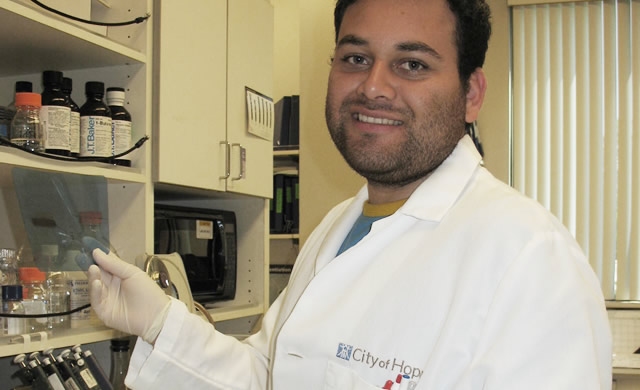
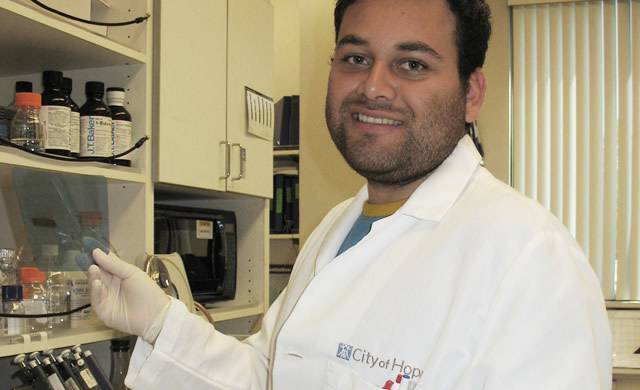

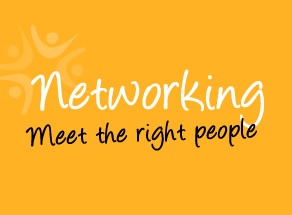
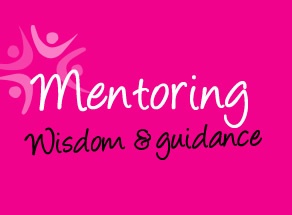
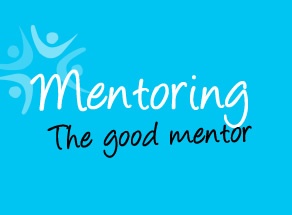
Post your Comment
Please login or sign up to comment
Comments